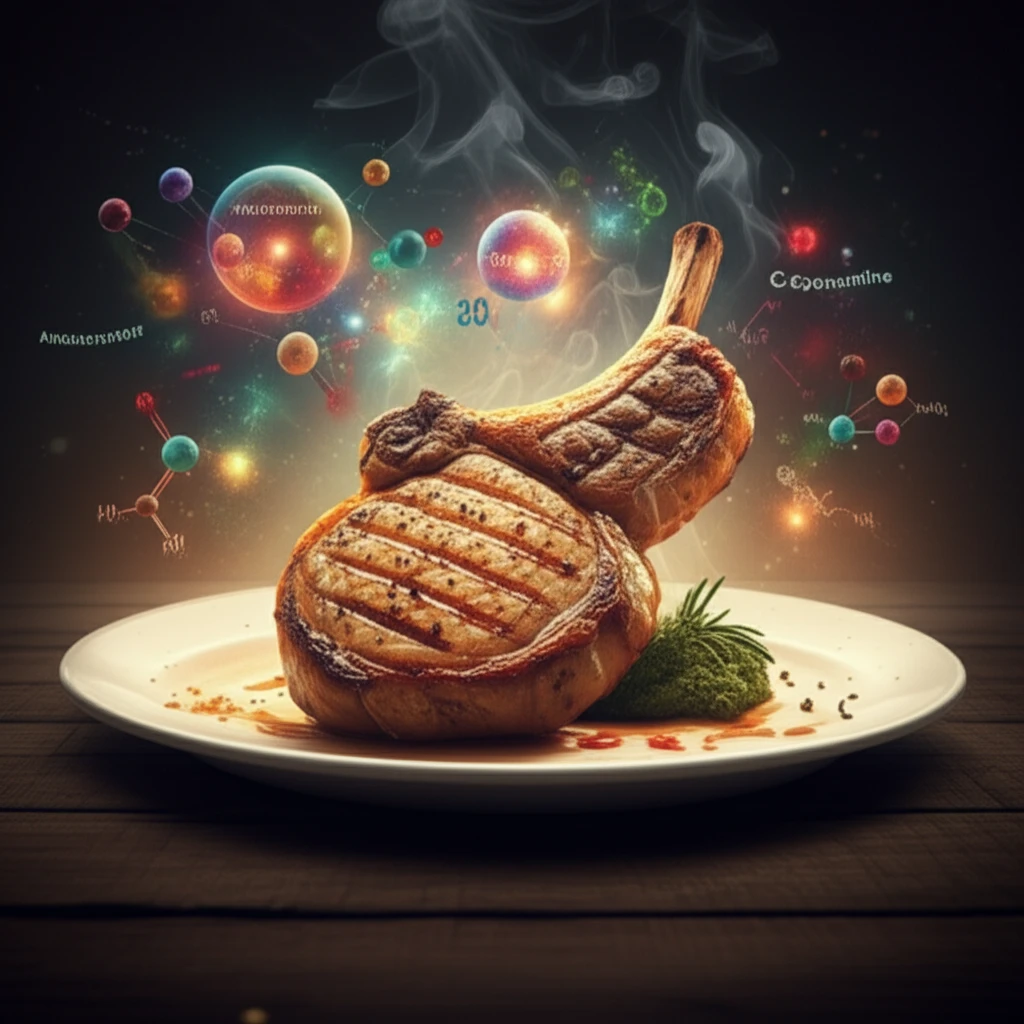
Pork Perfection: Can a Tiny Supplement Really Transform Your Meat?
"Discover how a surprising ingredient is making waves in the world of pork production, promising better color, flavor, and shelf life."
In the culinary world, the quest for the perfect pork chop is a never-ending journey. From the moment it hits the grill to the first savory bite, the color, texture, and flavor of pork play a pivotal role in the dining experience. But what if a simple dietary change could make a significant difference in the quality of your pork? Enter the world of coated cysteamine hydrochloride, a novel supplement making waves in the pork industry.
Recent research has unveiled the potential of this supplement to enhance the meat quality of finishing pigs, influencing everything from color and cooking loss to the levels of beneficial antioxidants. This article explores the science behind this innovative approach, offering insights into how a seemingly small addition to a pig's diet can lead to remarkable changes in the final product.
Join us as we delve into the study's findings, examining how coated cysteamine hydrochloride affects pork color, antioxidant status, and overall meat quality. Whether you're a food enthusiast, a health-conscious consumer, or simply curious about the latest advancements in food science, this exploration promises to be both informative and intriguing.
The Science Behind the Supplement: What Is Cysteamine Hydrochloride?

Cysteamine hydrochloride, the star ingredient in this dietary supplement, is a compound with a fascinating role in animal health. It acts as a building block in the production of glutathione (GSH), a crucial antioxidant that plays a vital role in protecting cells from damage. In essence, cysteamine helps boost the body's natural defenses, leading to a cascade of benefits.
- Enhanced Color: Improves the appearance of pork, making it more appealing.
- Reduced Cooking Loss: Keeps the meat juicier and more tender during cooking.
- Improved Antioxidant Levels: Boosts the pork's natural defenses against spoilage.
The Future of Pork: A Tastier Tomorrow
The results of this study suggest that the addition of coated cysteamine hydrochloride to a pig's diet has the potential to revolutionize the pork industry. As we continue to explore the nuances of food science and nutrition, innovations like this provide an exciting glimpse into a future where culinary excellence meets scientific advancement. For consumers, this translates to a more enjoyable dining experience, while producers can look forward to enhanced efficiency and sustainability. The perfect pork chop may be closer than ever, thanks to a little help from a surprising supplement.
